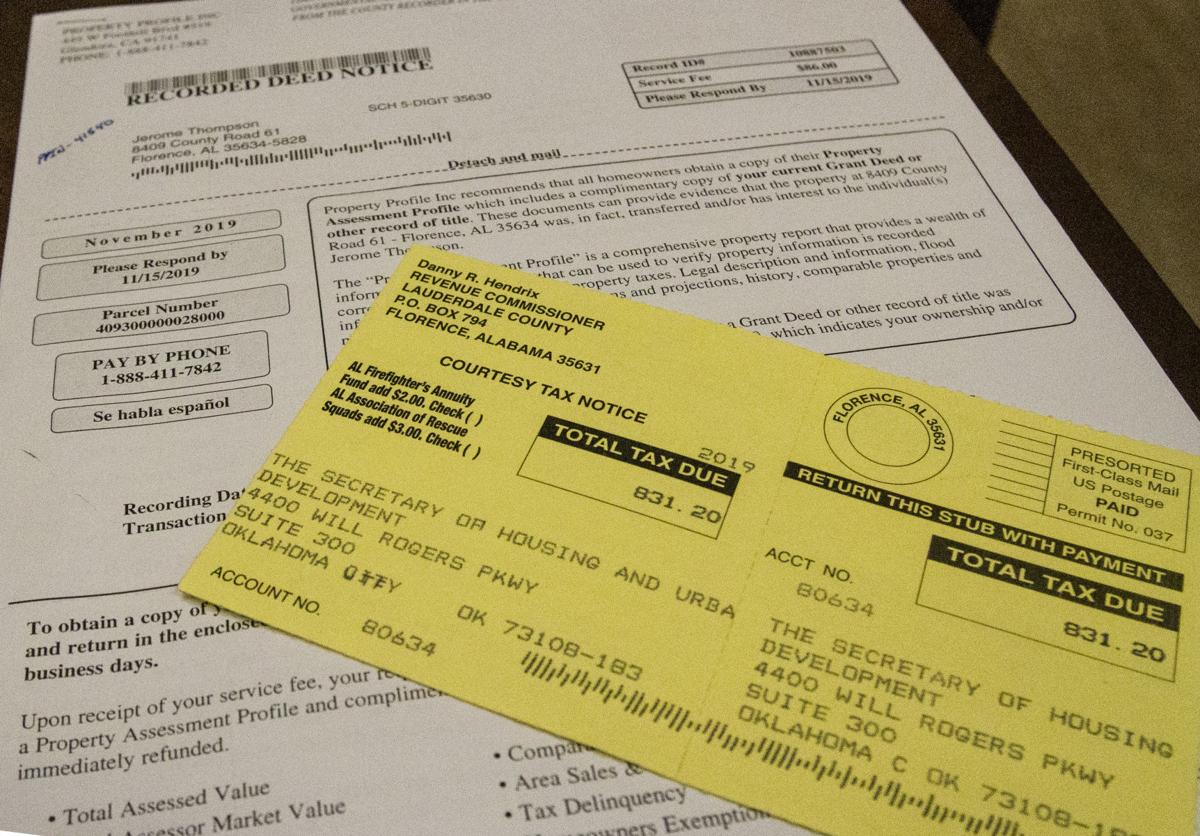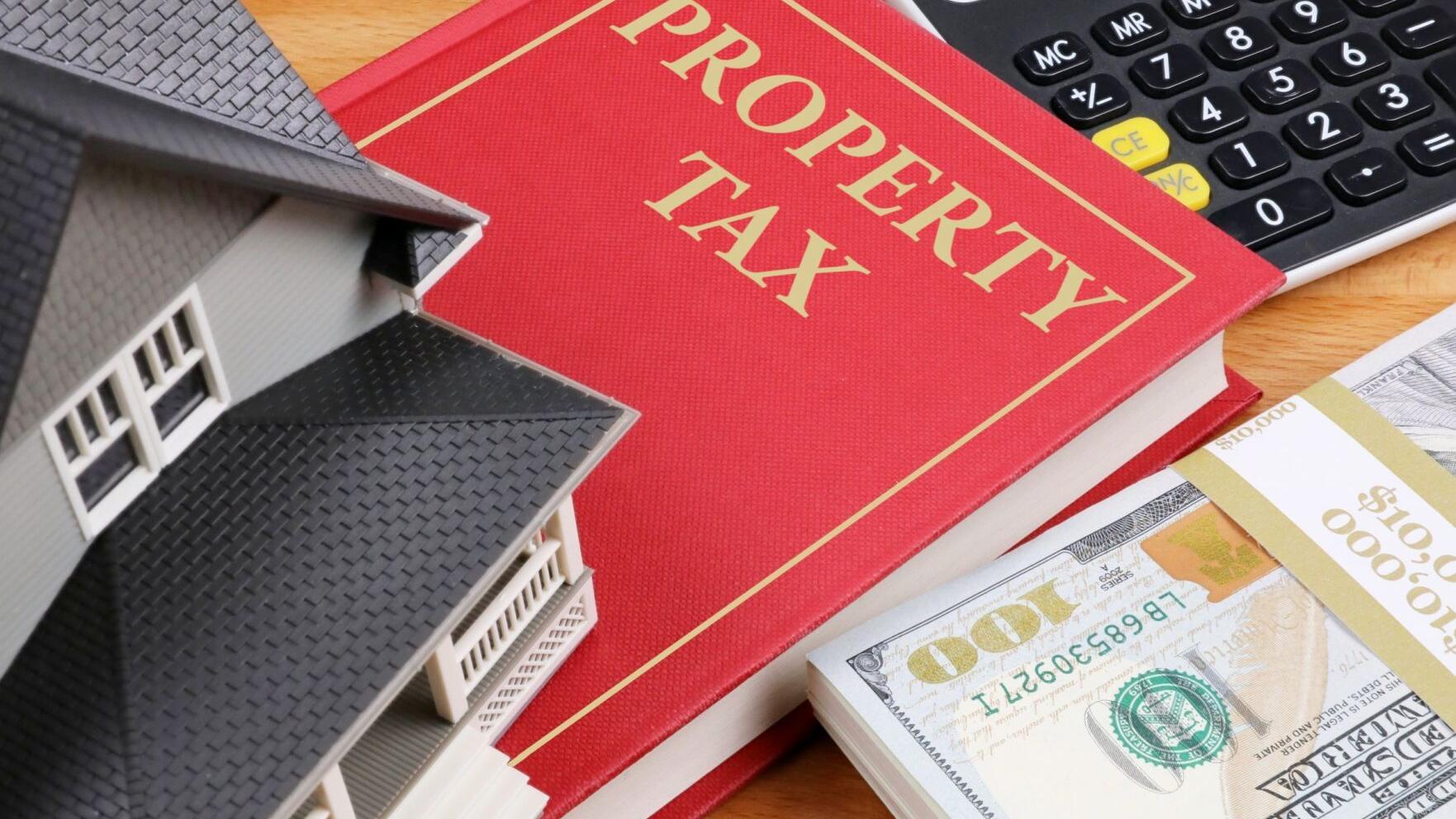Home>Home Maintenance>How To Appeal Philadelphia Property Assessment


Home Maintenance
How To Appeal Philadelphia Property Assessment
Modified: March 6, 2024
Learn how to appeal your Philadelphia property assessment and ensure your home's value is accurately assessed. Get expert tips and guidance on home maintenance and assessment appeals.
(Many of the links in this article redirect to a specific reviewed product. Your purchase of these products through affiliate links helps to generate commission for Storables.com, at no extra cost. Learn more)
Introduction
Welcome to the world of Philadelphia property assessments! Whether you’re a homeowner or a real estate investor, understanding how property assessments work is crucial. In Philadelphia, property assessments are used to determine the value of a property, which in turn influences the amount of property taxes you’re required to pay. However, assessments are not set in stone and can sometimes be inaccurate or unfair. That’s where the appeal process comes in.
In this article, we’ll delve into the intricacies of Philadelphia property assessments and guide you on how to navigate the appeal process effectively. By the end of this guide, you’ll have a clear understanding of why you might want to appeal your assessment, how to gather the necessary documentation, and the steps you’ll need to take to file an appeal with the Office of Property Assessment.
So, grab a cup of coffee and let’s dive into the world of Philadelphia property assessments!
Key Takeaways:
- Understand Your Assessment
Knowing why and how to appeal your Philadelphia property assessment is crucial. Gather evidence, understand the process, and consider professional help to navigate the appeals process effectively. - Be Prepared and Professional
When appealing your assessment, gather strong evidence, stay organized, and maintain professionalism. Consider alternative options if your appeal is denied, and stay informed about future assessments.
Read more: How Can I Appeal A Property Assessment
Understanding Philadelphia Property Assessments
In Philadelphia, property assessments are conducted by the Office of Property Assessment (OPA), a government agency responsible for determining the value of all properties in the city. The assessed value of a property acts as the basis for calculating property taxes.
The OPA uses a variety of factors to determine property values, including recent sales data, market conditions, and property characteristics such as size, age, and condition. These assessments are intended to be fair and reflect the market value of the property at the time of assessment.
It’s important to note that property assessments in Philadelphia are conducted on a mass-appraisal basis, meaning that assessors evaluate large groups of properties rather than individually assessing each property. This can result in assessments that may not accurately reflect the true market value of a specific property.
Philadelphia property assessments are typically conducted every year, and the assessed value is sent to property owners in the form of a Notice of Assessment. This notice includes important information such as the property’s assessed value, estimated market value, and the deadline to file an appeal.
While the OPA strives to ensure accurate assessments, there can be instances where assessments are inflated or undervalued. Inaccurate assessments can lead to higher property tax bills or missed opportunities for tax savings. That’s why it’s crucial to understand your property assessment and consider appealing if you believe it is inaccurate or unfair.
Now that we have a basic understanding of Philadelphia property assessments, let’s explore the common reasons why property owners may choose to appeal their assessments.
Reasons for Appealing Property Assessments
Appealing a property assessment is not something to be taken lightly, but there are valid reasons why property owners in Philadelphia may choose to do so. Here are some common reasons why you might consider appealing your property assessment:
- Inaccurate Property Information: The OPA relies on a variety of data sources to determine property values, including public records and historical sales data. However, there can be instances where the information used to assess your property is incorrect. This could include inaccurate property dimensions, incorrect number of bedrooms or bathrooms, or outdated information about renovations or improvements.
- Comparable Sales Evidence: Assessments are supposed to reflect the market value of the property. If you have evidence that comparable properties in your area have sold for significantly lower prices than your assessed value, it may be a strong basis for an appeal. Collecting recent sales data, preferably from similar properties, will help support your case.
- Market Changes: The real estate market is constantly evolving, and sometimes the assessed values do not keep up with those changes. If you can demonstrate that the market in your area has significantly declined since your last assessment, it may be a compelling reason for appeal.
- Condition of the Property: Assessments should consider the condition of the property. If your property has significant structural issues, such as a leaking roof, foundation problems, or outdated systems, it may warrant a lower assessment.
- Excessive Assessment: In some cases, property assessments can be inflated, resulting in higher property taxes than necessary. If you believe that your assessed value is significantly higher than the true market value of your property, it’s worth considering an appeal.
Remember, when appealing your property assessment, you will need to provide evidence to support your case. Gathering the necessary documentation is crucial to strengthening your appeal. Let’s explore the steps involved in gathering the required documentation.
Gathering Necessary Documentation
When preparing to appeal your property assessment in Philadelphia, it’s essential to gather the necessary documentation to support your case. The documentation you collect will serve as evidence to demonstrate any inaccuracies or discrepancies in your assessment. Here are some key documents you should consider gathering:
- Property Deed: The property deed serves as proof of ownership and provides important details about the property, such as its legal description and boundaries. It’s important to have a copy of your property deed when filing an appeal.
- Recent Appraisals: If you have recently obtained an appraisal for your property, whether for refinancing or other purposes, it can provide valuable evidence of your property’s market value. Include a copy of the appraisal report with your appeal.
- Recent Sales Data: Collect recent sales data for comparable properties in your area. This can include information on similar properties that have sold at prices below your assessed value. Make sure to include the addresses, sale prices, and sale dates of these properties for reference.
- Property Photographs: Take clear photographs of your property’s exterior and interior. These photographs can help illustrate any condition issues, such as outdated features or structural problems, that may warrant a lower assessment.
- Contractor Estimates: If you have received estimates or invoices for repair work or renovations on your property, include them as supporting documentation. These estimates can demonstrate the impact of necessary repairs on your property value.
It’s also important to note that the Office of Property Assessment may request additional documentation during the appeal process. Therefore, it’s a good idea to keep any relevant paperwork, such as receipts for repairs or remodeling, handy for potential requests.
Once you have gathered all the necessary documentation, you are ready to proceed with filing an appeal with the Office of Property Assessment. In the next section, we will walk you through the process of filing an appeal.
Filing an Appeal with the Office of Property Assessment
Ready to challenge your property assessment? Filing an appeal with the Office of Property Assessment (OPA) is the next step in the process. Follow these steps to ensure a smooth and successful appeal:
- Review the Notice of Assessment: Carefully review the Notice of Assessment that you received from the OPA. Note the deadline for filing an appeal, as missing this deadline could result in your appeal being dismissed.
- Access the OPA Website: Visit the OPA’s official website to access the necessary forms and instructions for filing an appeal. The website provides an online portal where you can submit your appeal electronically.
- Prepare your Appeal: Fill out the appeal form provided by the OPA. Provide accurate and detailed information about your property, the reasons for your appeal, and the supporting documentation you have gathered.
- Submit your Appeal: Once you have completed the appeal form, submit it to the OPA before the deadline specified in the Notice of Assessment. Make sure to follow the instructions for submitting your appeal, whether it’s through the online portal or by mail.
- Keep Copies: Make copies of your appeal form and all the supporting documentation you have included. This will serve as a record for your own reference.
After filing your appeal, the OPA will review your case and determine whether an informal discussion or a formal hearing is necessary. The next section will provide more details on the appeals process and what you can expect during this stage.
It’s important to note that the appeal process can be complex, and having professional assistance can be beneficial. Consider consulting with a real estate attorney or a property tax consultant who specializes in property assessment appeals for guidance and support.
Ready to navigate the appeals process? Let’s dive into what happens next.
The Appeals Process
Once you have filed your property assessment appeal with the Office of Property Assessment (OPA), the appeals process begins. Understanding the different stages of the process will help you navigate it effectively. Here is an overview of what you can expect:
- Informal Discussion: In many cases, the OPA will schedule an informal discussion to address your appeal. During this discussion, you will have the opportunity to present your case and provide any additional supporting documentation. This is a chance to have a dialogue with the OPA staff and potentially reach a resolution without the need for a formal hearing.
- Formal Hearing: If an agreement cannot be reached in the informal discussion or if you requested a formal hearing in your appeal, a formal hearing will be scheduled. At the formal hearing, you will present your case before the Board of Revision of Taxes (BRT) or the Tax Review Board (TRB). These boards are independent bodies tasked with reviewing property assessment appeals in Philadelphia.
- Presenting Evidence: During the formal hearing, you will have the opportunity to present your evidence and arguments supporting your appeal. This may include providing testimony, questioning witnesses, and submitting additional documentation. It’s important to be prepared and organized to effectively make your case.
- Appeals Decision: After reviewing the evidence and considering your arguments, the BRT or TRB will issue a decision on your appeal. The decision will be communicated to you in writing and will outline whether your assessment has been modified or if it will remain unchanged. Keep in mind that the decision is final unless you choose to further appeal the ruling in court.
Throughout the appeals process, it’s important to maintain open communication with the OPA and comply with any additional requests for documentation or information. Be sure to keep copies of all correspondence and documentation related to your appeal for your records.
Now that you have a better understanding of the appeals process, let’s discuss how to prepare for the informal discussion or formal hearing, depending on the route your appeal takes.
When appealing a Philadelphia property assessment, gather evidence of comparable property values in your area to support your case. This can include recent sales data, appraisals, or assessments of similar properties.
Preparing for the Informal Hearing
If your property assessment appeal with the Office of Property Assessment (OPA) progresses to an informal discussion, it’s important to be well-prepared. While the informal hearing is less formal than a formal hearing, it still requires careful planning and organization. Here are some steps to help you prepare:
- Review Your Appeal: Take the time to review your appeal and ensure that you have a clear understanding of your reasons for disputing the assessment. Refresh your memory on the key points you want to communicate during the informal hearing.
- Organize Your Documentation: Gather all the supporting documentation you have collected, such as recent appraisals, sales data, photographs, and contractor estimates. Organize the documents in a logical order, making it easy to reference and present your evidence during the discussion.
- Prepare Your Talking Points: Think about the key points you want to convey during the informal hearing. Develop a concise and persuasive argument that highlights the flaws or inaccuracies in your assessment. Practice articulating your talking points to ensure you are clear and confident during the discussion.
- Anticipate Questions: Consider the possible questions or objections that the OPA staff may raise during the informal hearing. Prepare concise and factual responses to address these potential concerns. This will demonstrate that you have thoroughly considered the issues raised by the OPA.
- Be Professional and Respectful: During the informal hearing, maintain a professional and respectful demeanor. Treat the OPA staff with courtesy and address any questions or concerns they may have with patience and clarity. Present your case in a professional manner to increase the likelihood of a favorable outcome.
- Take Notes: During the informal discussion, take notes of any important points or decisions made. These notes will serve as a reference for any subsequent actions or appeals that you may need to undertake.
By properly preparing for the informal hearing, you will be well-equipped to present your case effectively and increase your chances of achieving a favorable outcome. However, if an agreement cannot be reached in the informal discussion, your appeal may progress to a formal hearing with the Board of Revision of Taxes (BRT) or the Tax Review Board (TRB). We will explore how to present evidence at a formal hearing in the next section.
Presenting Evidence at the Formal Hearing
If your property assessment appeal with the Office of Property Assessment (OPA) progresses to a formal hearing with the Board of Revision of Taxes (BRT) or the Tax Review Board (TRB), presenting your evidence effectively is essential. The formal hearing provides you with the opportunity to present a strong case and support your arguments. Here are some tips for presenting evidence at a formal hearing:
- Organize Your Evidence: Review all the documentation you have gathered for your appeal and organize it in a logical and coherent manner. Label each piece of evidence clearly and create an index or table of contents to make it easy for the board members to follow along.
- Create a Visual Presentation: Consider creating a visual presentation to enhance your arguments. This could include a slideshow with key images, graphs, or charts that illustrate your points. Visual aids can help make complex information more digestible and memorable for the board members.
- Practice Your Presentation: Rehearse your presentation beforehand to ensure that you are comfortable and confident in delivering your evidence. Practice speaking clearly and concisely, focusing on the key points you want to highlight. Time yourself to ensure that you stay within the allotted presentation time.
- Be Factual and Objective: When presenting your evidence, stick to the facts and avoid emotional or subjective statements. Present objective information, such as recent sales data, appraisals, or expert opinions, to support your case. This will strengthen the credibility of your arguments.
- Address Counterarguments: Anticipate potential counterarguments that may be raised by the board members. Prepare concise and logical responses to rebut any objections or challenges to your evidence. By addressing counterarguments proactively, you demonstrate that you have thoroughly considered opposing perspectives.
- Engage in Professional Discourse: During the formal hearing, maintain a professional and respectful tone. Listen attentively to the board members’ questions and comments, and respond thoughtfully and courteously. Engaging in a respectful dialogue will contribute to a constructive exchange of information.
- Follow the Rules and Procedures: Familiarize yourself with the rules and procedures of the formal hearing process. Adhere to any time limits for your presentation and follow any specific guidelines provided by the board. Compliance with the rules shows respect for the process and helps maintain the integrity of the appeal.
Remember, the goal of presenting evidence at a formal hearing is to provide compelling support for your appeal and persuade the board members to reconsider your property assessment. With careful preparation, organization, and a professional approach, you can effectively present your evidence and increase your chances of a successful outcome.
Once the formal hearing concludes, you will await the decision rendered by the BRT or TRB. Let’s discuss what happens after you receive the appeals decision.
Receiving the Appeals Decision
After presenting your case at the formal hearing with the Board of Revision of Taxes (BRT) or the Tax Review Board (TRB), you will patiently await the appeals decision. This is the final outcome of your property assessment appeal process. Here’s what you can expect after receiving the decision:
- Written Decision: The BRT or TRB will issue a written decision regarding your appeal. This decision will outline whether your assessment has been modified or if it will remain unchanged. It will provide a detailed explanation of the board’s reasoning and the evidence considered in making their determination.
- Notification of Outcome: The written decision will be mailed to you or provided electronically, depending on the communication preferences you selected during the appeals process. It’s essential to carefully review the decision and take note of any deadlines or further actions required.
- Acceptance of Decision: If the decision is in your favor, and your assessment has been modified to your satisfaction, you can accept the decision and proceed accordingly. Be sure to update your records and adjust your property tax payments in line with the new assessment.
- Appealing Further: If you disagree with the appeals decision, you have the option to further appeal it through the court system. Consult with a real estate attorney to discuss the feasibility and potential merits of pursuing a court appeal. Be aware that there may be specific deadlines and requirements to follow if you choose this route.
- Future Assessments: Even if your appeal is successful, keep in mind that property assessments are conducted periodically. You will still be subject to future assessments, and it’s essential to keep track of any changes or discrepancies that may arise in subsequent assessments.
Receiving the appeals decision is the final step in the formal property assessment appeal process. Whether the decision is in your favor or not, it’s important to review it carefully and take appropriate action. If your assessment has been modified to your satisfaction, congratulations! If not, remember that you still have options if you believe the decision is unjust or in error.
Keep in mind that the appeals process can vary from case to case, and it’s crucial to consult with professionals such as real estate attorneys or property tax consultants who specialize in property assessment appeals. They can provide guidance and support tailored to your specific circumstances.
Now that we’ve covered the potential outcomes of the appeals decision, let’s discuss some recommendations and final thoughts for navigating the property assessment appeal process in Philadelphia.
If Your Appeal is Denied
Receiving a denial on your property assessment appeal can be disappointing, but it’s important not to feel discouraged. If your appeal is denied by the Board of Revision of Taxes (BRT) or the Tax Review Board (TRB), there are still steps you can take. Here’s what to do if your appeal is denied:
- Review the Decision: Take the time to carefully review the written decision provided by the BRT or TRB. Understand the reasoning behind the denial and the evidence considered in making their determination. This will help you identify any potential weaknesses in your case or areas where you can strengthen your arguments.
- Consult with Professionals: Consider consulting with a real estate attorney or property tax consultant who specializes in property assessment appeals. They can provide expert advice on the next course of action, including the possibility of further legal appeals or alternative strategies for addressing your assessment concerns.
- Evaluate the Decision’s Merits: Assess the merits of your case and the likelihood of success if you were to pursue further appeals. Evaluate the costs, time, and effort involved in continued legal proceedings. A professional consultation can help you weigh these factors and make an informed decision.
- Explore Alternative Options: While a legal appeal is one option, you may also consider alternative avenues to address your assessment concerns. This could involve engaging in discussions with the Office of Property Assessment (OPA), seeking a reassessment, or pursuing a tax abatement or exemption for your property.
- Maintain Records: Keep all documentation related to your appeal and the denial. This includes the original property assessment, your appeal materials, and the written decision. These records will be valuable if you choose to pursue further legal avenues or if you encounter assessment issues in the future.
- Monitor Future Assessments: Even if your appeal is denied, it’s important to continue monitoring future property assessments. Stay informed about any changes in the market or property values in your area. If you believe your assessment is still inaccurate or unfair in subsequent assessments, you may decide to file another appeal in the future.
Remember, the denial of your appeal does not necessarily mean that your assessment is accurate or fair. It’s worth exploring all available options, consulting with professionals, and assessing the feasibility of pursuing further appeals or alternative strategies to address your assessment concerns.
Property assessment appeals can be complex, and having expert advice can be invaluable. Take the time to seek guidance and consider all available avenues to ensure fair treatment and accurate assessments moving forward.
Now, let’s wrap up with some final thoughts and recommendations for navigating the property assessment appeal process in Philadelphia.
Final Thoughts and Recommendations
Navigating the property assessment appeal process in Philadelphia can seem daunting, but with the right knowledge and approach, you can advocate for fair and accurate assessments. Here are some final thoughts and recommendations to help guide you:
- Understand the Assessment Process: Educate yourself on how property assessments are conducted in Philadelphia. Familiarize yourself with the factors that influence assessments and the appeals process. This knowledge will empower you to make informed decisions regarding your property assessment.
- Gather Strong Supporting Evidence: When appealing your property assessment, gather thorough and compelling documentation to support your case. This includes recent appraisals, sales data, photographs, and contractor estimates. Strong evidence can significantly strengthen your appeal.
- Consider Professional Assistance: Consulting with a real estate attorney or property tax consultant who specializes in property assessment appeals can provide valuable expertise and guidance. They can help navigate the intricacies of the process, increasing your chances of a successful appeal.
- Be Prepared and Organized: Whether preparing for an informal hearing or a formal hearing, thoroughly prepare your case. Organize your documentation, practice your presentation, and anticipate potential objections or questions. Being prepared and organized will enhance your credibility and chances of a favorable outcome.
- Maintain Professionalism: Throughout the appeals process, maintain a professional and respectful demeanor. Engage in constructive dialogue and address any concerns or questions with clarity and courtesy. Professionalism can go a long way in building positive relationships and achieving a fair assessment outcome.
- Stay Informed and Monitor Assessments: Property assessments are periodically conducted. Stay informed about changes in the market and property values in your area. Monitor future assessments to ensure accuracy and fairness. If necessary, be prepared to file future appeals as needed.
- Examine Alternative Options: If your appeal is denied, don’t be discouraged. Explore alternative avenues such as reassessments, tax abatement or exemption programs, or engaging in discussions with the Office of Property Assessment. There may still be opportunities to address your assessment concerns outside of the formal appeals process.
Remember, the property assessment appeal process can vary from case to case, and it’s crucial to seek professional advice based on your unique circumstances. Utilize the resources available to you, stay informed, and advocate for fair and accurate property assessments in Philadelphia.
By understanding the process, gathering strong evidence, and seeking expert guidance when needed, you can navigate the appeals process effectively and work towards a fair assessment outcome. Good luck with your property assessment appeal!
Frequently Asked Questions about How To Appeal Philadelphia Property Assessment
Was this page helpful?
At Storables.com, we guarantee accurate and reliable information. Our content, validated by Expert Board Contributors, is crafted following stringent Editorial Policies. We're committed to providing you with well-researched, expert-backed insights for all your informational needs.














0 thoughts on “How To Appeal Philadelphia Property Assessment”